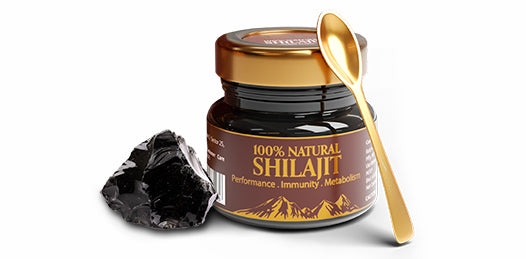Uneven skin tone, characterized by irregular skin darkening, can cause by various factors, including sun exposure, hormonal changes, age, and even environmental pollutants. While achieving a flawless complexion might seem daunting, several practical strategies and treatments can even out your skin tone and enhance skin's natural beauty. Here's a comprehensive guide on how to tackle uneven skin tone.
Understanding Uneven Skin Tone
Before diving into solutions, it's crucial to understand what causes uneven skin tone. At its core, uneven skin tone is often a result of hyperpigmentation. This condition occurs when excess melanin, the pigment that gives skin its colour, forms deposits in the skin. Hyperpigmentation can manifest in various forms, such as age spots, melasma, and post-inflammatory hyperpigmentation from acne.

Preventive Measures
- Sun Protection:One of the simplest yet most effective ways to prevent uneven skin toneis to protect your skin from the sun. UV rays can exacerbate hyperpigmentation by triggering melanin production. Use a broad-spectrum sunscreen with minimum SPF 30 everyday, even when it's cloudy, and reapply every two hours when exposed to the sun. Additionally, wearing hats, sunglasses, and protective clothing can shield your skin from harmful rays.
- Avoid Touching or Picking at the Skin:Picking at your skin, especially blemishes, can lead to scars and dark spots. It is crucial to let blemishes heal naturally without interference to maintain an even skin tone.
Daily Skincare Routine
- Cleansing and Exfoliating:Regular cleansing helps remove dirt, oil, and pollutants contributing to uneven skin tone. Gentle exfoliation, mechanical with a scrub or chemical with products containing AHAs or BHAs, can remove dead skin cells and promote cell renewal. Exfoliate your skin 2 to 3 times a week, depending on your skin type, to keep your skin smooth and clear.
- Vitamin C Serum:Vitamin C is an ingredient for evening-out skin tone and boosting radiance. It's an antioxidant that helps prevent melanin production and brightens the complexion. Applying a vitamin C serum every morning before a sunscreen can reduce the appearance of spotsand lead to a more even-toned complexion.
- Retinoids:Retinoids promote skin cell turnover, which fades dark spots and improve skin texture. Available over-the-counter as retinol and by prescription, these products can be effective in a nighttime skincare routine. However, they can make your skin more sensitive to the sun, so using sunscreen daily is crucial.

Advanced Treatments
- Chemical Peels:These peels involve applying a chemical solution to the face, causing the top layers of skin to peel off. This process reveals fresher, more evenly pigmented skin beneath. Peels can range from superficial to deep, depending on the severity of the skin tone issues.
- Laser Therapy:Laser treatments can target more profound layers of the skin without damaging the surface. Lasers such as fractional lasers promote collagen production and remove melanin clusters, which can even out skin tone. It's necessary to consult a dermatologist to determine the type of laser best for your skin type and colour.
- Microdermabrasion:This treatment uses aabrasive instrument to gently exfoliate your skin, removing the thicker, uneven outer layer. It's famous for treating light scarring, discolouration, and sun damage.
Lifestyle Adjustments
- Diet and Hydration:What you eat affects your skin's appearance. Foods that are rich in antioxidants, such as berries, nuts, and greenleafy vegetables, can protect the skin from damage that leads to uneven skin tone. Staying hydrated is crucial for maintaining the skin's elasticity and overall health.
- Manage Stress:Chronic stress leads tobreakouts and other skin problems, contributing to uneven skin tone. Techniques such as yoga, meditation, and regular exercise can help manage stress.
Choosing the Right Products
To effectively tackle uneven skin tone and enhance your skin's overall health, it's essential to carefully select skincare products that not only target hyperpigmentation but also complement your skin type and sensitivity. Here are detailed considerations to help guide you in choosing the right products:

Opt for Non-Comedogenic Products:
Using non-comedogenic products is crucial, especially if you have acne-prone skin. These products are mainly formulated not to block pores, thereby reducing the risk of acne outbreaks, which can lead to post-inflammatory hyperpigmentation. Whether moisturizers, sunscreens, or makeup, opting for non-comedogenic options can prevent new dark spots from forming.
Skin Type-Specific Products:
Every skin type has unique needs:
- Oily Skin: Look for lightweight, oil-free, or gel-based products that provide hydration and treatment without adding extra oil.
- Dry Skin: Cream-based products that contain hydrating ingredients like hyaluronic acid and ceramides improves skin texture and reduces the appearance of dark spots by providing moisture and repairing the skin barrier.
- Combination Skin: You might need to use a combination of products, targeting different areas with different treatments, such as lighter products on oily areas and more emollient products on dry patches.
- Sensitive Skin: Choose products with gentle formulations free of potential irritants like fragrances, alcohol, and harsh chemicals. Ingredients like aloe vera and niacinamide can soothe skin while treating uneven tone.
Sunscreen is a crucial component in any skincare product lineup for tackling uneven skin tone. Daily application of a broad-spectrum sunscreen with SPF 30 or higher can protect the skin from UV rays, which exacerbate dark spots and hyperpigmentation. Consider sunscreens that contain added antioxidants like vitamin E for extra protective benefits.
Testing for Suitability:
Since everyone's skin reacts differently to various ingredients, it's essential to patch test new products before fully incorporating them into your routine. Apply a small amount of the product to your inner forearm for several days consecutively to test for any adverse reactions, such as redness, itching, or breakout.
By following these guidelines, you can more effectively choose skincare products that will help to even out your skin tone and maintain your skin's overall health and integrity. Remember, topical products can significantly improve appearance, but they work best with a comprehensive skincare approach that includes healthy lifestyle choices.
Conclusion
Tackling uneven skin tone requires a combination of preventative measures, effective skincare practices, advanced treatments, and lifestyle changes. You can achieve a more transparent, radiant complexion by understanding the underlying causes and exploring various treatment options. Remember, consistency is key in any skincare regimen. Always consult a dermatologist before starting new treatments, especially if you have sensitive skin or severe hyperpigmentation. With the right approach, you can enhance your skin's natural beauty and boost your confidence with a flawless complexion.











